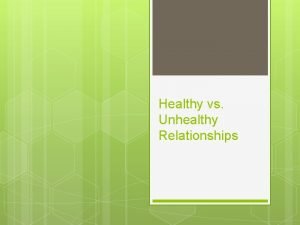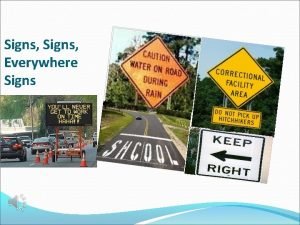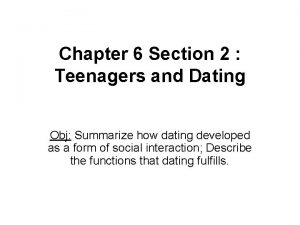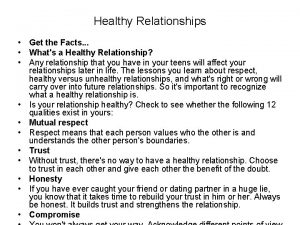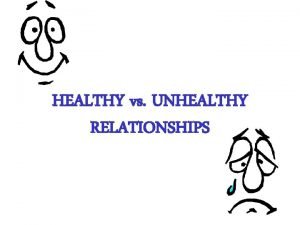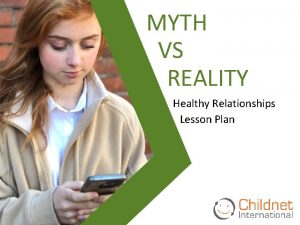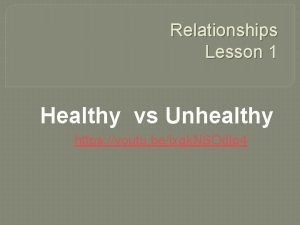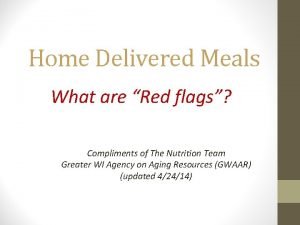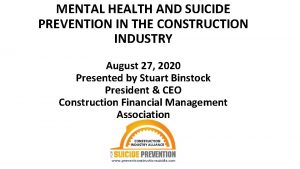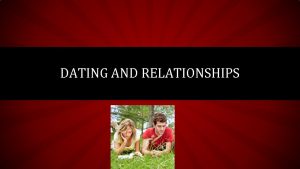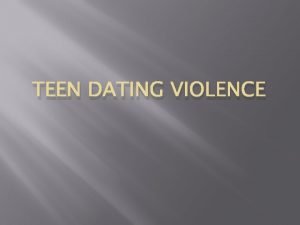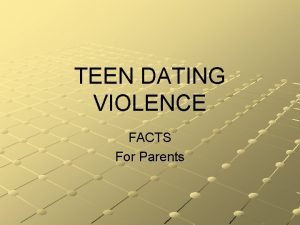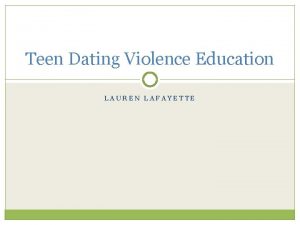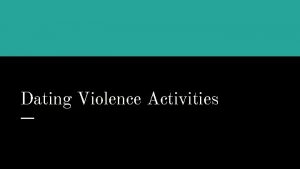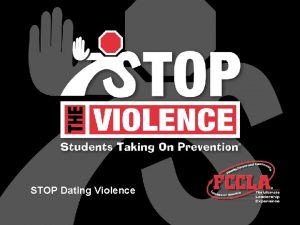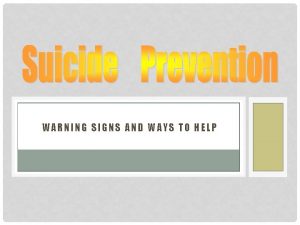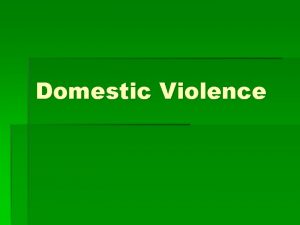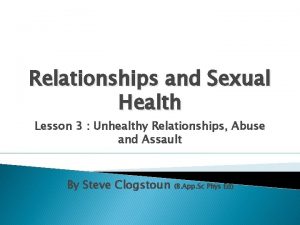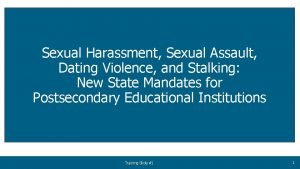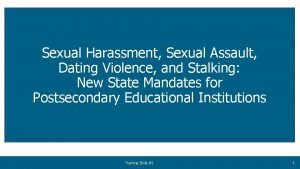DATING VIOLENCE WARNING SIGNS OF UNHEALTHY RELATIONSHIPS SEXUAL












- Slides: 12

DATING VIOLENCE WARNING SIGNS OF UNHEALTHY RELATIONSHIPS

SEXUAL HARASSMENT • Any unwanted conduct or communication of a sexual nature that negatively affect a person’s relationships, employment opportunities or environment. • Harassment may be verbal or physical.

EXAMPLES OF SEXUAL HARASSMENT • Name Calling • Grabbing • Threats • Pushing • Inappropriate Jokes • Cornering • Spreading Rumors • Unwanted • Gestures/Leers • Writing on Bathroom Walls Kissing/Touching • Inappropriately touching body

HOW TO DEAL WITH SEXUAL HARASSMENT • Let the person know that you are uncomfortable with their behavior. Tell them to stop. Be assertive. • Tell someone you trust: parent, relative, coach, teacher, counselor, etc. • Keep a record of the harassment to show what’s been happening. • If you see or suspect something, say something!

TYPES OF ABUSE • Physical: Can begin with threats of violence, punching fist through wall, escalates to pushing, slapping, restraining, etc. Finally, it can become life threatening. • Sexual: Any non-consensual, forced sexual behavior. It may escalate to rape or sexual assault. • Emotional/Psychological: Mental violence that can include constant verbal threats and abuse, harassment, excessive possessiveness, isolating abused person from others, damage of personal property, intimidation, etc.

DATING VIOLENCE • A pattern of behavior to establish power and control over another person through fear and intimidation – often including the threat or use of violence. • It occurs when one person believes they are entitled to control another person and those involved are in an intimate or close relationship.

STATS ON TEEN DATING VIOLENCE • 1 in 4 teens will be in an abusive relationship • 1 in 8 teens will experience physical violence in a dating relationship. • 80% of assaults include pushing, shoving, slapping and grabbing. • Victims and abusers come from all different social and economic backgrounds.

RELATIONSHIP RED FLAGS WARNING SIGNS OF A PARTNER WHO IS OR MAY BECOME VIOLENT • Wants to get serious quickly • Will not take NO for an answer • Is overly jealous and possessive • Wants to choose their partners friends and activities • Is controlling and bossy (makes all the decisions)

RELATIONSHIP RED FLAGS • Puts partner down when alone and in front of others • Makes partner feel guilty – “If you really loved me you would…” • Blames the victim for behavior – “It’s your fault I get so angry. ” But, then apologizes – “I’ll never do it again, I promise. ” • Has strong ideas about gender roles.

WHY TEENS STAY • Embarrassed or ashamed • Afraid violence will escalate if they try to end the relationship • Convinced it’s their fault • No experience with healthy dating relationships • Confuse jealousy with love • Ignore reality – don’t know they’re being abused

WHY TEENS STAY • Afraid friends and family won’t believe them • Feel like there is no one they can turn to for support • Mix of “good times” and hope that partner will change • Believe that being involved with someone is the MOST important thing in their life – better to be with someone than to be alone

WHAT SHOULD YOU DO? • If you or someone you know is in an abusive or unhealthy relationship. . . TELL SOMEONE! • Parents, friends, trusted adult, teacher, counselor, police, professional mental health worker.
 Healthy vs unhealthy dating relationships
Healthy vs unhealthy dating relationships Sign shapes meaning
Sign shapes meaning Dating patterns since the 1960s are
Dating patterns since the 1960s are Scenarios of unhealthy relationships
Scenarios of unhealthy relationships Military power and control wheel
Military power and control wheel Facts about healthy and unhealthy relationships
Facts about healthy and unhealthy relationships Healthy vs unhealthy relationships scenarios
Healthy vs unhealthy relationships scenarios Define the relationship chapter 14
Define the relationship chapter 14 Healthy relationship lesson plans
Healthy relationship lesson plans Healthy vs unhealthy relationships worksheet
Healthy vs unhealthy relationships worksheet Warning signs of a seizure
Warning signs of a seizure Warning signs of a seizure
Warning signs of a seizure Warning signs of anxiety
Warning signs of anxiety
